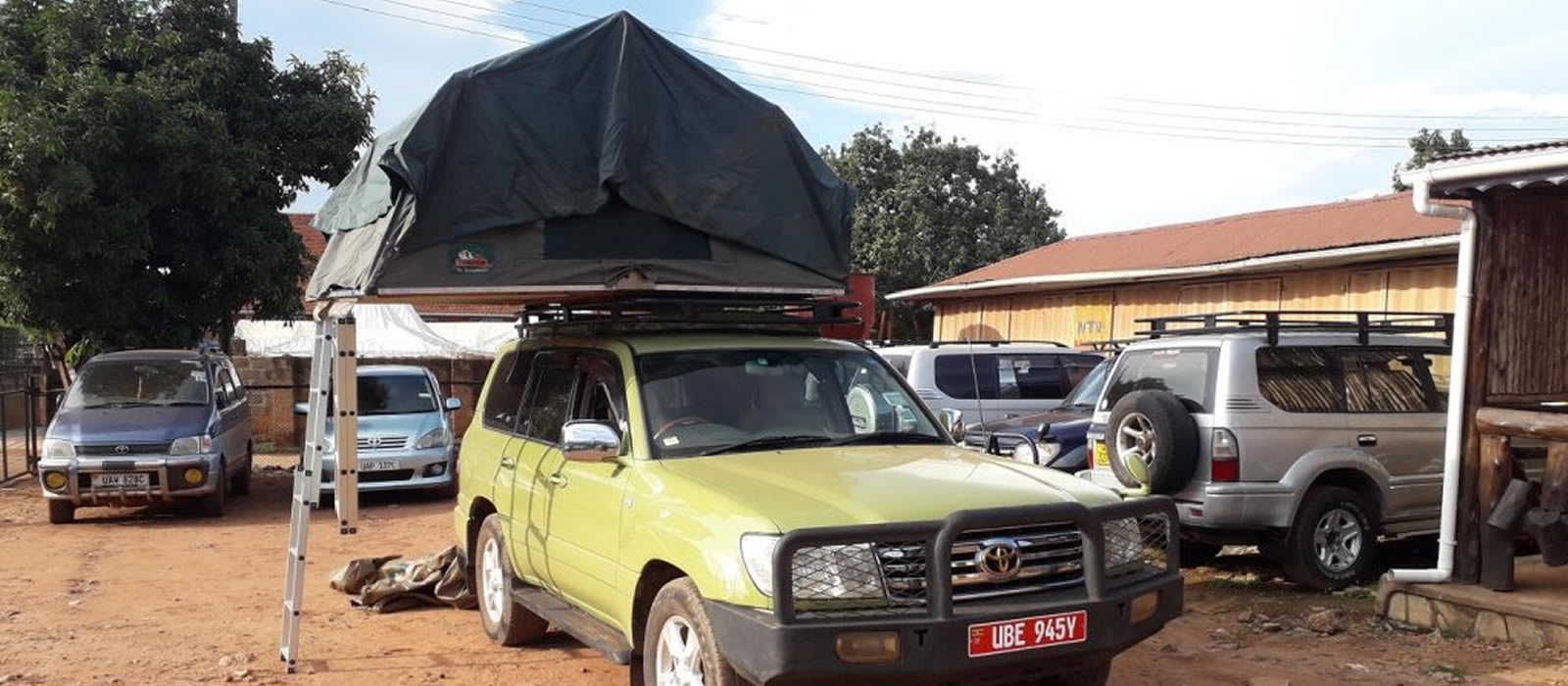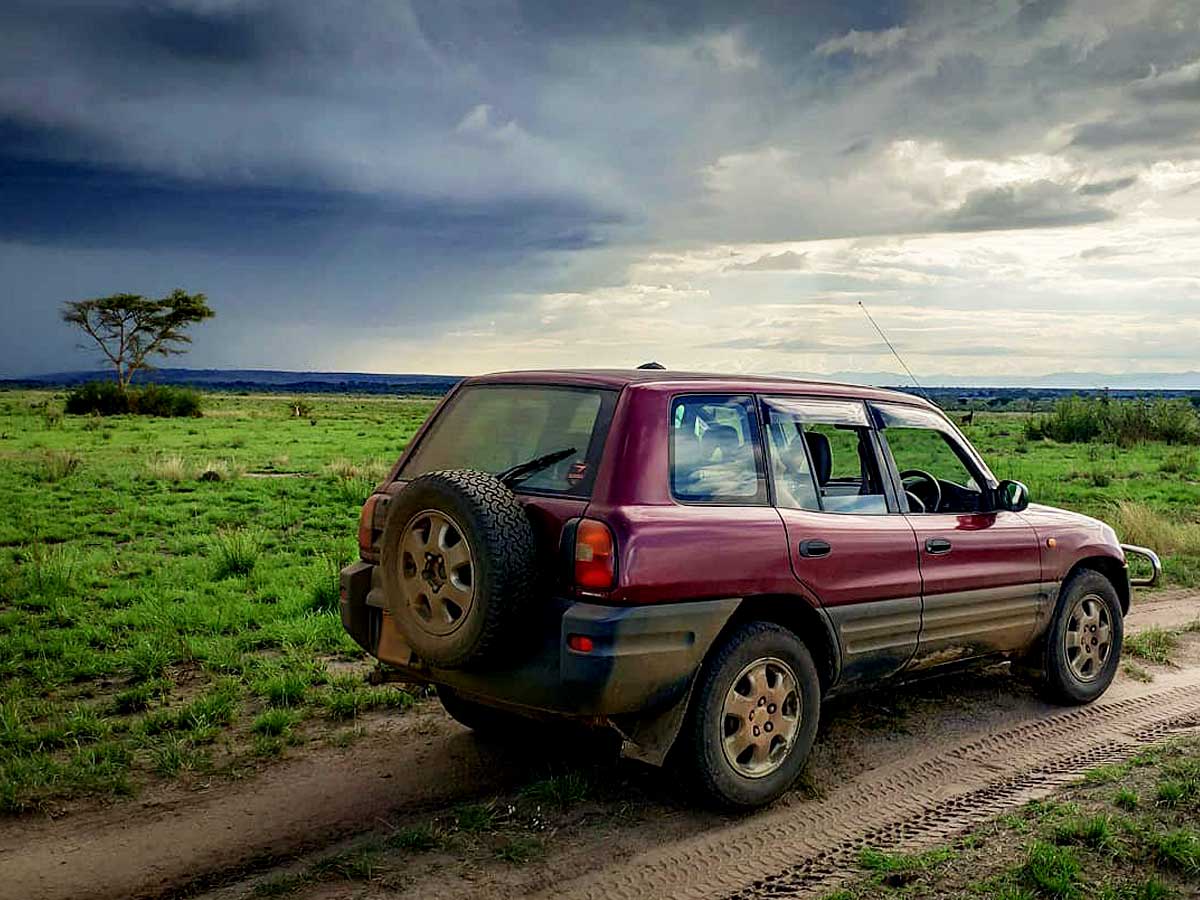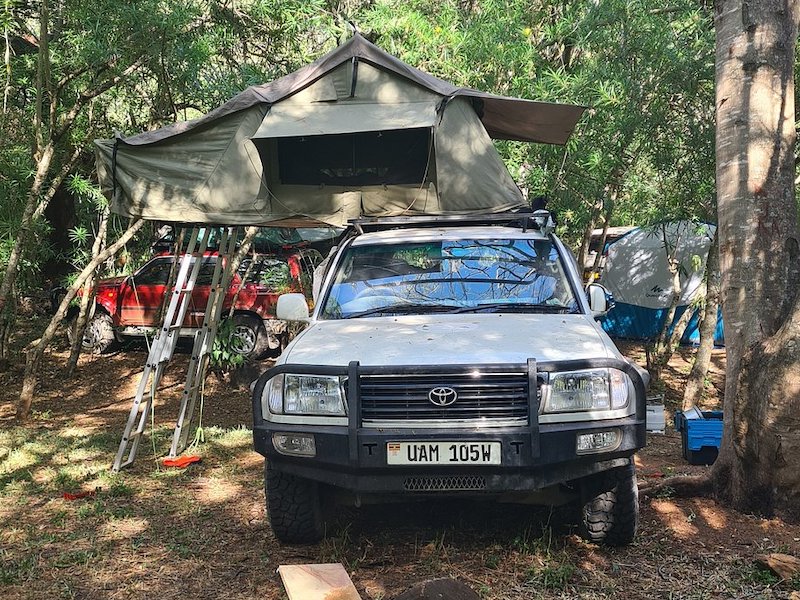Uganda's diverse terrain and remote wilderness areas demand well-equipped vehicles for safe and successful adventures.…
Top 8 Reasons Why Uganda Is A Top Africa Safari Destination
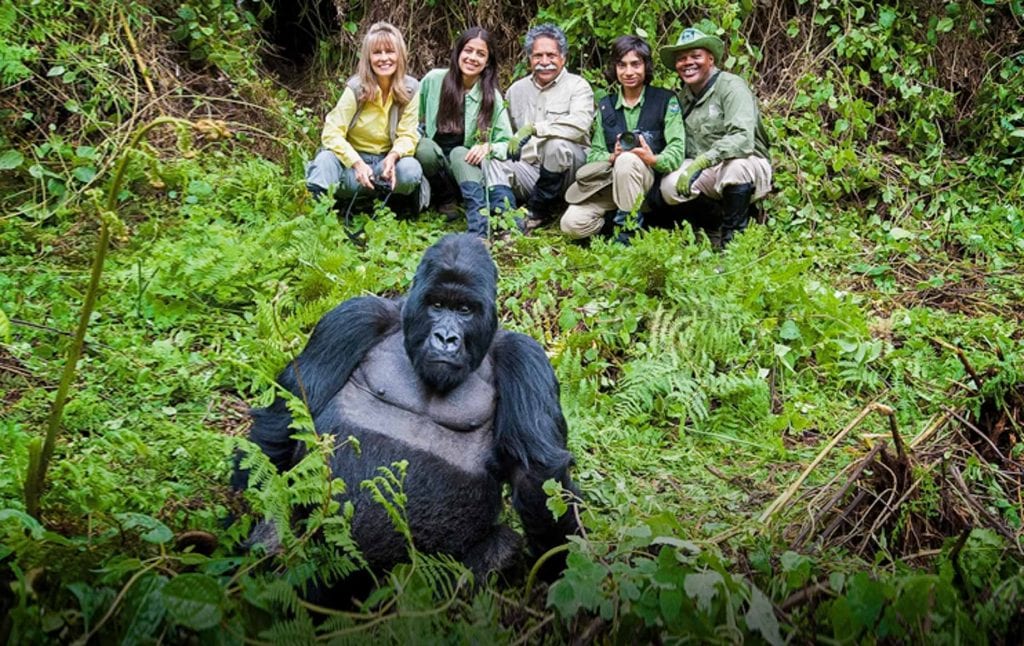
Uganda, dubbed the Pearl Of Africa by Winston Churchill, has emerged as one of Africa’s most compelling safari destinations. While Kenya and Tanzania may dominate the headlines, Uganda offers an intimate, diverse, and authentic wildlife experience that rivals any destination on the continent. From tracking mountain gorillas through misty forests to witnessing the raw power of the Nile, Uganda delivers safari experiences that create lifelong memories.
1. Home to Half the World’s Mountain Gorillas
![]() Uganda’s crown jewel is undoubtedly its mountain gorilla population. Bwindi Impenetrable National Park and Mgahinga Gorilla National Park protect nearly half of the world’s remaining mountain gorillas, with only about 1,000 individuals left in the wild. The gorilla trekking experience in Uganda is considered superior to other destinations due to several factors: the habituated gorilla families are well-accustomed to human presence, the forests are more accessible than those in the Democratic Republic of Congo, and Uganda’s political stability ensures consistent access to these magnificent creatures.
Uganda’s crown jewel is undoubtedly its mountain gorilla population. Bwindi Impenetrable National Park and Mgahinga Gorilla National Park protect nearly half of the world’s remaining mountain gorillas, with only about 1,000 individuals left in the wild. The gorilla trekking experience in Uganda is considered superior to other destinations due to several factors: the habituated gorilla families are well-accustomed to human presence, the forests are more accessible than those in the Democratic Republic of Congo, and Uganda’s political stability ensures consistent access to these magnificent creatures.
The encounter itself is transformative. After hiking through dense montane forests, visitors spend a precious hour observing gorilla families in their natural habitat. Watching a silverback patriarch calmly observing his family while juveniles play nearby creates an emotional connection that photographs simply cannot capture. Uganda’s gorilla permits, while requiring advance booking, offer better availability and access compared to Rwanda’s higher-priced alternatives.
We organize budget gorilla trekking in Bwindi forest for all types of travelers, catering for on-ground transportation, booking permits & accommodation as well as no surcharge fee.
2. Extraordinary Primate Diversity
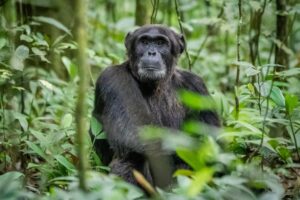 Beyond mountain gorillas, Uganda boasts the highest primate diversity in Africa, with 13 different species calling the country home. Kibale National Park, known as the “Primate Capital of the World,” offers exceptional chimpanzee tracking experiences with a 95% success rate for sightings. The park is home to over 1,500 chimpanzees, and visitors can observe these intelligent creatures swinging through the canopy, grooming each other, and displaying complex social behaviors.
Beyond mountain gorillas, Uganda boasts the highest primate diversity in Africa, with 13 different species calling the country home. Kibale National Park, known as the “Primate Capital of the World,” offers exceptional chimpanzee tracking experiences with a 95% success rate for sightings. The park is home to over 1,500 chimpanzees, and visitors can observe these intelligent creatures swinging through the canopy, grooming each other, and displaying complex social behaviors.
The experience extends beyond chimpanzees to include encounters with red colobus monkeys, L’Hoest’s monkeys, blue monkeys, and the rare golden monkeys found in Mgahinga. Budongo Forest provides another excellent chimpanzee tracking opportunity, while Queen Elizabeth National Park offers unique tree-climbing lions alongside various primate species. This primate diversity creates opportunities for wildlife enthusiasts to observe our closest relatives in pristine natural environments.
3. The Mighty Source of the Nile
 Uganda holds the distinction of being home to the source of the Nile River, where Lake Victoria begins its 4,135-mile journey to the Mediterranean Sea. Jinja, located at this historic confluence, offers adventure activities that complement traditional safari experiences. White-water rafting on the Nile provides world-class rapids suitable for both beginners and experienced rafters, while boat cruises offer peaceful wildlife viewing opportunities.
Uganda holds the distinction of being home to the source of the Nile River, where Lake Victoria begins its 4,135-mile journey to the Mediterranean Sea. Jinja, located at this historic confluence, offers adventure activities that complement traditional safari experiences. White-water rafting on the Nile provides world-class rapids suitable for both beginners and experienced rafters, while boat cruises offer peaceful wildlife viewing opportunities.
The Nile’s significance extends beyond adventure tourism. Murchison Falls National Park showcases the river’s raw power as it squeezes through a narrow gorge and plunges 43 meters in a thunderous cascade. Boat safaris along the Nile in this park provide excellent opportunities to observe hippos, crocodiles, elephants, and numerous bird species. The combination of dramatic landscapes and abundant wildlife along the Nile creates safari experiences that are both thrilling and serene.
4. Incredible Bird Watching Paradise
 With over 1,060 recorded bird species, Uganda ranks among the world’s top birding destinations despite its relatively small size. This remarkable diversity stems from Uganda’s position at the crossroads of East and West African ecosystems, combined with varied habitats ranging from montane forests to savanna grasslands and wetlands.
With over 1,060 recorded bird species, Uganda ranks among the world’s top birding destinations despite its relatively small size. This remarkable diversity stems from Uganda’s position at the crossroads of East and West African ecosystems, combined with varied habitats ranging from montane forests to savanna grasslands and wetlands.
The country hosts several endemic and near-endemic species, including the rare shoebill stork found in Mabamba Swamp and other wetland areas. Queen Elizabeth National Park alone boasts over 600 bird species, while the Albertine Rift region harbors numerous endemic species found nowhere else on Earth. Semuliki National Park offers West African forest species rarely seen elsewhere in East Africa, making Uganda a bucket-list destination for serious birders and casual wildlife enthusiasts alike.
5. Diverse and Dramatic Landscapes
 Uganda’s compact size belies its incredible landscape diversity. The country encompasses snow-capped mountains, dense rainforests, open savannas, crater lakes, and expansive wetlands, all within an area smaller than the state of Oregon. The Rwenzori Mountains, known as the “Mountains of the Moon,” offer challenging trekking opportunities through unique alpine vegetation zones, while the Virunga Volcanoes provide dramatic backdrops for gorilla trekking.
Uganda’s compact size belies its incredible landscape diversity. The country encompasses snow-capped mountains, dense rainforests, open savannas, crater lakes, and expansive wetlands, all within an area smaller than the state of Oregon. The Rwenzori Mountains, known as the “Mountains of the Moon,” offer challenging trekking opportunities through unique alpine vegetation zones, while the Virunga Volcanoes provide dramatic backdrops for gorilla trekking.
The crater lakes region near Fort Portal presents stunning scenery with dozens of small lakes nestled in ancient volcanic craters, creating a landscape that seems almost otherworldly. Queen Elizabeth National Park’s diverse ecosystems range from acacia woodland to papyrus swamps, each supporting different wildlife communities. This landscape diversity means that every day of a Uganda safari can offer completely different scenery and wildlife encounters.
6. Authentic Cultural Encounters
 Uganda’s 56 distinct tribes create a rich cultural tapestry that enhances any safari experience. Unlike more commercialized safari destinations, Uganda offers authentic cultural encounters that provide genuine insights into traditional African ways of life. The Batwa people, indigenous forest dwellers, share their intimate knowledge of the forest environment and traditional hunting techniques during cultural walks around Bwindi and Mgahinga.
Uganda’s 56 distinct tribes create a rich cultural tapestry that enhances any safari experience. Unlike more commercialized safari destinations, Uganda offers authentic cultural encounters that provide genuine insights into traditional African ways of life. The Batwa people, indigenous forest dwellers, share their intimate knowledge of the forest environment and traditional hunting techniques during cultural walks around Bwindi and Mgahinga.
Community-based tourism initiatives throughout the country allow visitors to participate in traditional activities like banana brewing, pottery making, and traditional dance performances. These interactions provide context for conservation efforts and demonstrate how local communities benefit from wildlife tourism. The cultural component of Uganda safaris creates meaningful connections between visitors and local people, making the experience more enriching and impactful.
7. Excellent Value for Money
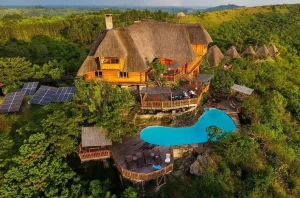 Uganda offers exceptional value compared to other premier African safari destinations. Accommodation options range from budget-friendly bandas to luxury lodges, but even high-end properties cost significantly less than equivalent facilities in Kenya, Tanzania, or South Africa. Park entrance fees are reasonable, and the country’s compact size means shorter travel distances between attractions, reducing transportation costs.
Uganda offers exceptional value compared to other premier African safari destinations. Accommodation options range from budget-friendly bandas to luxury lodges, but even high-end properties cost significantly less than equivalent facilities in Kenya, Tanzania, or South Africa. Park entrance fees are reasonable, and the country’s compact size means shorter travel distances between attractions, reducing transportation costs.
The value extends beyond mere economics. Uganda’s less crowded parks mean more intimate wildlife encounters without the vehicle congestion common in popular East African circuits. Gorilla permits, while requiring advance booking, are priced more accessibly than Rwanda’s premium-priced alternatives. This combination of affordability and quality makes Uganda an attractive option for both budget-conscious travelers and those seeking luxury experiences without premium prices.
8. Conservation Success Stories
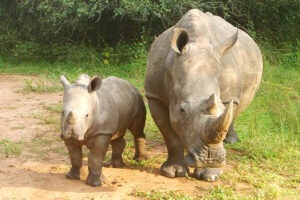 Uganda stands out for its remarkable conservation achievements, particularly in wildlife recovery and community-based conservation initiatives. The country has successfully brought several species back from the brink of extinction, including white rhinos through the Ziwa Rhino Sanctuary program, which aims to reintroduce rhinos to their former habitats.
Uganda stands out for its remarkable conservation achievements, particularly in wildlife recovery and community-based conservation initiatives. The country has successfully brought several species back from the brink of extinction, including white rhinos through the Ziwa Rhino Sanctuary program, which aims to reintroduce rhinos to their former habitats.
Mountain gorilla populations have increased due to dedicated conservation efforts, anti-poaching initiatives, and community involvement in tourism benefits. The Uganda Wildlife Authority’s progressive approach to conservation includes revenue-sharing programs that ensure local communities benefit directly from wildlife tourism, creating incentives for conservation rather than poaching or habitat destruction.
These success stories extend to elephant populations in Queen Elizabeth and Murchison Falls National Parks, which have recovered significantly from poaching pressures of previous decades. Visitors to Uganda contribute directly to these conservation efforts, making their safari experience meaningful beyond personal enjoyment.
Conclusion
Uganda’s emergence as a premier African safari destination reflects its unique combination of rare wildlife, diverse landscapes, cultural richness, and conservation success. The opportunity to track mountain gorillas and chimpanzees in their natural habitat, combined with traditional Big Five viewing and exceptional birding, creates safari experiences that are both comprehensive and intimate.
The country’s commitment to sustainable tourism and community involvement ensures that visits contribute to conservation and local development. For travelers seeking authentic African experiences away from crowded tourist circuits, Uganda offers an unmatched combination of wildlife diversity, cultural depth, and value that establishes it among Africa’s top safari destinations.
Whether you’re a first-time safari visitor or an experienced Africa traveler, a self-drive or driver-guided Uganda safari experience will exceed expectations and create memories that last a lifetime. To book a 4×4 rental car for a safari adventure in the Pearl Of Africa, simply contact us now by sending an email to info@rent4x4caruganda.com or call us now via +256-700135510 to speak with the reservations team.

